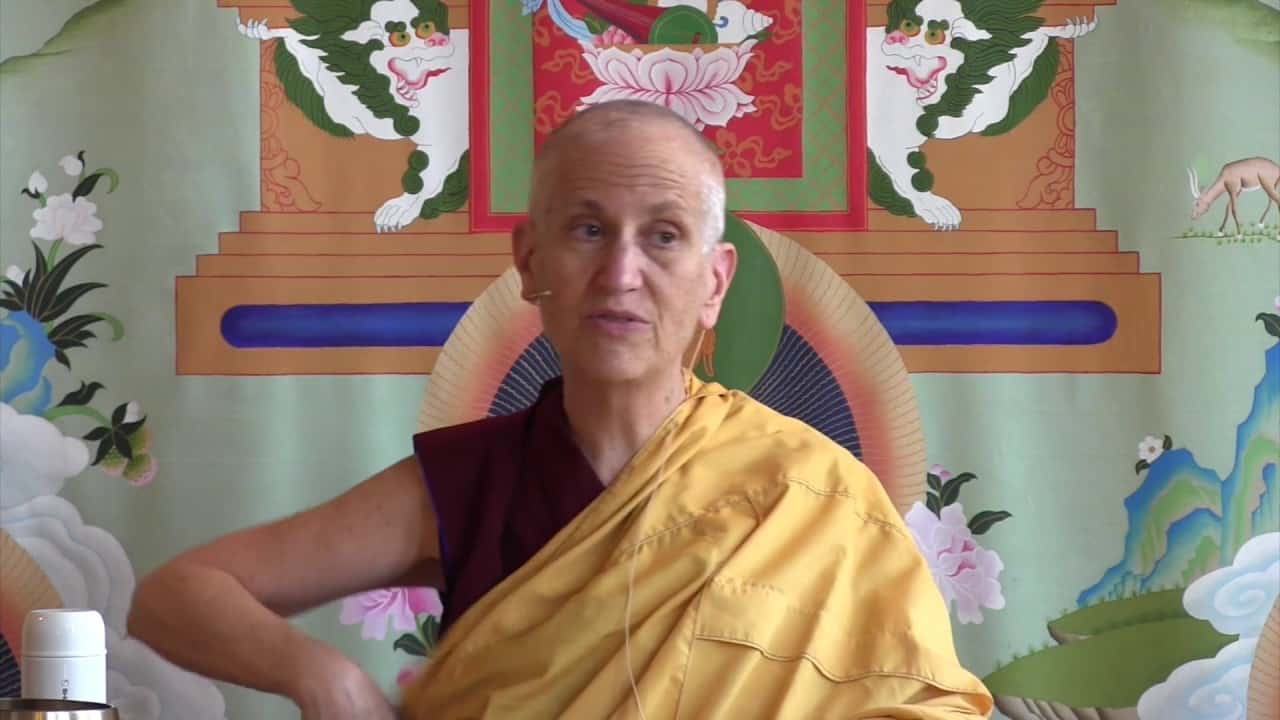Cultivating equanimity

I certainly wish to have a good rebirth. What person in their right mind wants to be reborn as a hell being, hungry ghost or animal? The description of these lower rebirths in the lamrim texts are quite graphic and frightening. I found this section very difficult to read and meditate on. I’m glad I’m not prone to nightmares.
I certainly wish to eventually escape samsara. The older I get, the more I realize that cyclic existence leaves a lot to be desired. There is never any real certainty, security or stability in this world except for the certainty of karma and duhkha. The duhkha of pain is obviously quite unpleasant. But even the pleasant experiences are temporary at best and not fully satisfying. If you keep eating that luscious chocolate cake you will eventually get a terrible stomach ache. This is called the duhkha of change. And don’t forget the pervasive duhkha of conditioning which propels us from one rebirth into another under the influence of our afflictions and karma. How wonderful it would be to be liberated from this endless cycle of birth, aging, sickness and death.
I certainly wish to eventually attain full awakening and buddhahood for the benefit of all sentient beings. How wonderful that would be to free everyone from their afflictions and karma and eliminate all the suffering in the world. There is one small problem I need to overcome first before I can enter the path for the advanced practitioner. That “small” problem is developing equanimity. I can easily feel strong love and compassion for my friends and relatives (at least most of them). And when I see a homeless stranger on the street my heart truly goes out to him. It’s the difficult people, the people I don’t see eye to eye with who are the true test of my practice. And after this last election I realize I have plenty of work to do.
I have heard and read all the reasons for having equal love and compassion for all sentient beings. Everyone is the same in wanting happiness and freedom from suffering. Everyone is infected with ignorance, anger and attachment which results in harmful behavior and guarantees we will experience suffering and not happiness. The “difficult” people in my life are only that way due to my own afflictions and karma. I need to separate the action from the person doing the action. Every sentient being has at one time been my mother. So, why is it so difficult to break that habit of judging people and putting them in the three boxes of friend, enemy and stranger? It’s the ugly twosome of self-centeredness and self-grasping ignorance.
Because I have reached an impasse in my efforts to develop equanimity I decided to look for yet another line of reasoning which might resonate with my defiant mind. When we study emptiness we learn that there is no inherently existent self. We are not permanent, partless or independent. We are not self-sufficient and substantially existent. We are only conceived and designated in dependence on our aggregates. Those aggregates of body and mind are in constant flux. Even though I am a continuum, I am not the same person I was as a child or a young adult. My mind doesn’t think the same way, and my body definitely doesn’t look or feel the same way. My past self and my future self are related but at the same time different from my present self. When I look back at my 67 years, I can recall times when I liked myself, when I hated myself and when I didn’t know myself. So, I have been a friend, enemy and stranger to myself over the years. These three categories are usually applied to other people. But I can also apply them to how I view myself. The enemy in the case of self is my self-centeredness and self-grasping ignorance.
By using these three categories and applying them to myself as well as others it helps me to think less dualistically. If I can lessen my attachment, anger, and apathy toward myself, it should be easier to develop equanimity. If I can develop compassion for myself as a friend, enemy and stranger then maybe I can have equal compassion for everyone else. As soon as I started thinking of myself from the standpoint of being a friend, enemy and stranger to the self, I could feel my judging mind become less judgmental of others.
Kenneth Mondal
Ken Mondal is a retired Ophthalmologist who lives in Spokane, Washington. He received his education at Temple University and University of Pennsylvania in Philadelphia and residency training at University of California-San Francisco. He practiced in Ohio, Washington and Hawaii. Ken met the Dharma in 2011 and attends teachings and retreats on a regular basis at Sravasti Abbey. He also loves to do volunteer work in the Abbey's beautiful forest.


